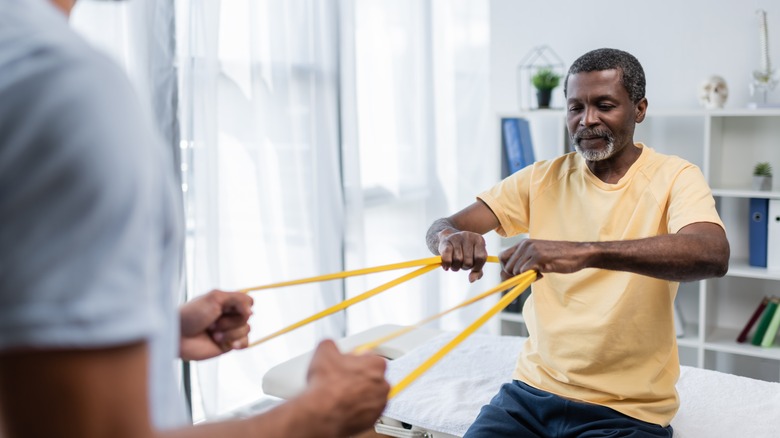Strength-training exercises can also be beneficial for people with low blood sugar levels. These exercises help to build muscle, which can in turn help to better regulate blood sugar levels. Lifting weights is a good option for people who want to add some strength training to their workout routine. However, it is important to start slowly and gradually increase the amount of weight that is lifted over time.
What does it mean to have low blood sugar?
Low blood sugar is technically called hypoglycemia, and it occurs when there isn’t enough sugar in your bloodstream (via Mayo Clinic). Sugar, or glucose, is essential for proper cell function and energy production. When levels drop too low, it can cause a variety of symptoms. The most common symptom is feeling tired or weak. You may also feel shaky, sweaty, have a headache, or feel like your heart is racing. If you have diabetes and experience low blood sugar, you may also have blurred vision, feel confused, or have trouble speaking.
Low blood sugar can happen to anyone if they don’t eat for a while or if they exercise more than usual without replenishing their glycogen stores. But people with diabetes are more susceptible because their bodies have trouble regulating blood sugar levels. There are two types of hypoglycemia: fasting and reactive. Fasting hypoglycemia happens when you haven’t eaten for several hours, and your blood sugar drops as a result. Reactive hypoglycemia, on the other hand, occurs within four hours after eating a meal. It’s caused by a problem with how your body handles carbohydrates. If you think you might be experiencing hypoglycemia, it’s important to speak with a doctor so that they can rule out any other potential causes.
The importance of regular exercise
The CDC recommends that adults get at least 150 minutes of moderate-intensity aerobic exercise (like brisk walking) every week. There are many benefits of regular exercise, both mental and physical. Regular exercise can help people manage their weight because it helps to burn calories (via CDC). For people who are trying to lose weight, regular exercise can help them reach their goals. For people who are trying to maintain their weight, regular exercise can help them avoid gaining weight. Exercise can also help people build muscle mass and strength. Stronger muscles and bones mean that people are less likely to get injured.
Increased energy levels is another benefit of regular exercise. People who are physically active tend to have more energy than those who are not active. This is because physical activity helps to improve the function of the cardiovascular system and the respiratory system. These systems work together to deliver oxygen and nutrients to the cells in the body. When these systems are working properly, they can help to increase energy levels. Mental health is another area where regular exercise can have a positive impact (via Medical News Today). Exercise has been shown to help reduce stress and anxiety and improve your mood. People who exercise regularly tend to sleep better and have more energy during the day. Exercise can also help to improve cognitive function and memory.










